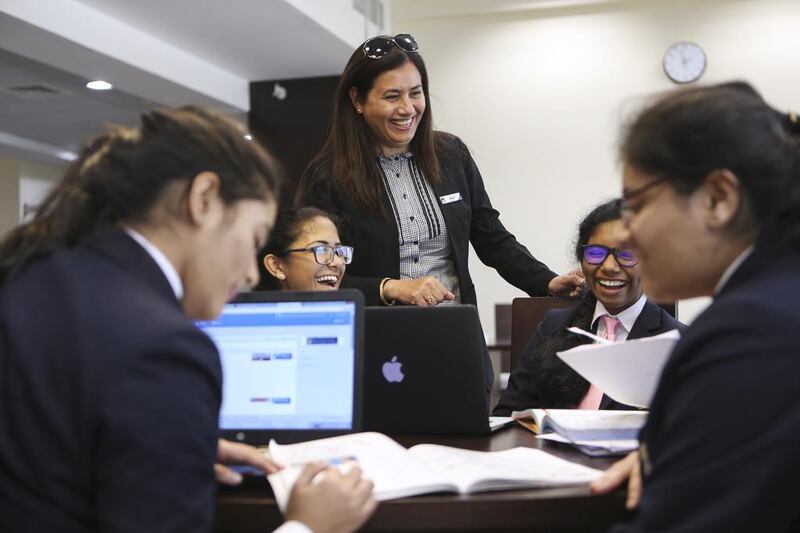DUBAI // Educators and parents have praised the government for paying more attention to how private schools are meeting the needs of special education needs pupils.
“I’m glad, it’s about time they did that,” said Gulshan Kavarana, a parent of a special needs teenager and founder of the Special Families Support Group.
“Honestly, I don’t think they’re equipped to have inclusion in the classrooms and the teachers, I don’t think they are trained enough and they don’t have enough help, and there are too many children in one class.”
The Knowledge and Human Development Authority, the private school regulator, recently released its Performance of Indian Schools in Dubai 2014-2015 Inspection Findings report, which featured a special focus on the needs of students with special needs.
“This has remained a priority this year,” said Fatma Belrehif, director of the KHDA’s Dubai Schools Inspection Bureau.
The KHDA results showed that only 39 per cent of the 2,700 special education needs pupils in Indian-curriculum schools received a “good” education during the inspection period last year. As much as 17 per cent of them are in schools rated as unsatisfactory.
No school was identified as offering outstanding special education.
“KHDA understands that school improvement takes time,” said Mrs Belrehif. “With the increased inspection focus on provision for students with SEN, schools are given more detailed feedback than in previous years. Schools are expected to use the feedback they receive to create improvement plans. Subsequent inspections evaluate each school’s progress towards improving its provision for students with SEN.”
Nargish Khambatta, principal of GEMS Modern Academy, one of only two schools that ranked outstanding overall, said: “We are very pleased that KHDA is ensuring very high standards when it comes to special education.
“While schools have excellent practitioners in the SEN department, the challenge lies in ensuring it gets translated in the classroom by teachers.
“What we need is a realistic parallel curriculum for severe cases, the need to regularise shadow teachers/learning support assistants and a conducive environment with parents and teachers not having exaggerated expectations for the children with special needs.”
He said there needed to be a “triangulated” support system between parents, teachers and children with special needs for Individual Education Plans (IEPs) to work.
Saleem Khan, headmaster of The Millennium School, said his school has always promoted a strong inclusion policy.
“The key to the success of an IEP is the ongoing training and development of class teachers so they know how to modify their daily lessons plans and teaching strategies to accommodate the learning needs of all students,” said Mr Khan.
“This is a complex, challenging and ever changing area for all teachers; the goal is always to challenge the most able student, while supporting the least able and it is essential to grasp to be a successful and inclusive school.”
rpennington@thenational.ae






